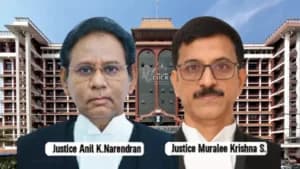Justice Abhay S Oka's tenure in the Indian judiciary is marked by his steadfast dedication to constitutional principles, judicial independence, and the protection of individual rights. His judgments and public statements reflect a deep commitment to upholding the rule of law and ensuring justice for all.
Read also: Supreme Court Declares Maharashtra’s Zudpi Jungles as Protected Forests, Mandates Strict
Justice Oka consistently defended the right to free speech and personal liberty. In the case of Javed Ahmad Hajam v. State of Maharashtra, he quashed criminal cases against a professor for WhatsApp statuses criticizing the abrogation of Article 370 and wishing Pakistanis on their Independence Day.
He emphasized, "Democracy will not survive if every criticism is seen as an offence," highlighting that criticism of government actions should not be criminalized.
In another significant judgment, he mandated that police must conduct a preliminary inquiry before registering FIRs in cases involving speech-related offences. This decision aimed to prevent the misuse of legal provisions to suppress free expression.
Read also: Supreme Court Criticizes Indian Navy Over Denial of Permanent Commission to Woman JAG Officer
Justice Oka was vocal about the need for reforms within the judiciary. He criticized the Supreme Court's "Chief Justice-centric" functioning, advocating for a more democratic administrative approach that reflects the diverse composition of the court.
He also addressed the issue of long pendency of cases, emphasizing that delays in justice delivery erode public faith in the judiciary. He called for increased judicial appointments and infrastructure to address the backlog of cases.
Justice Oka advocated for the cessation of religious rituals during court events, emphasizing the importance of upholding the secular principles enshrined in the Constitution. He suggested that court programs should commence by bowing to the Preamble of the Constitution rather than performing religious ceremonies.
Read also: "In Personal Liberty Cases, High Courts Must Act Swiftly": Supreme Court Grants Bail After 27
Demonstrating humility, Justice Oka admitted to an error in a 2016 judgment related to the Domestic Violence Act. He stated, "Judges are also human and they can make mistakes," underscoring the importance of continuous learning and accountability within the judiciary.








